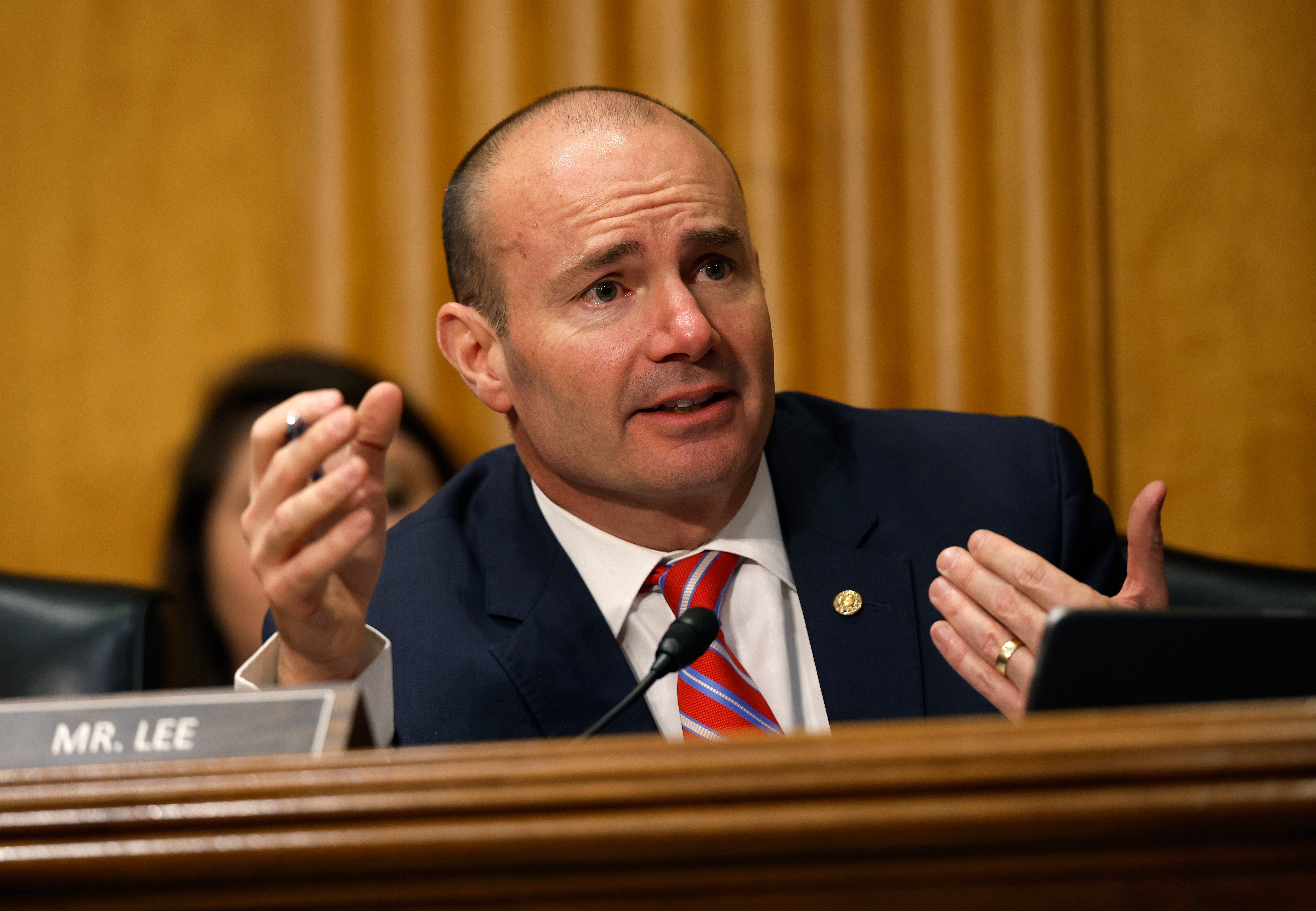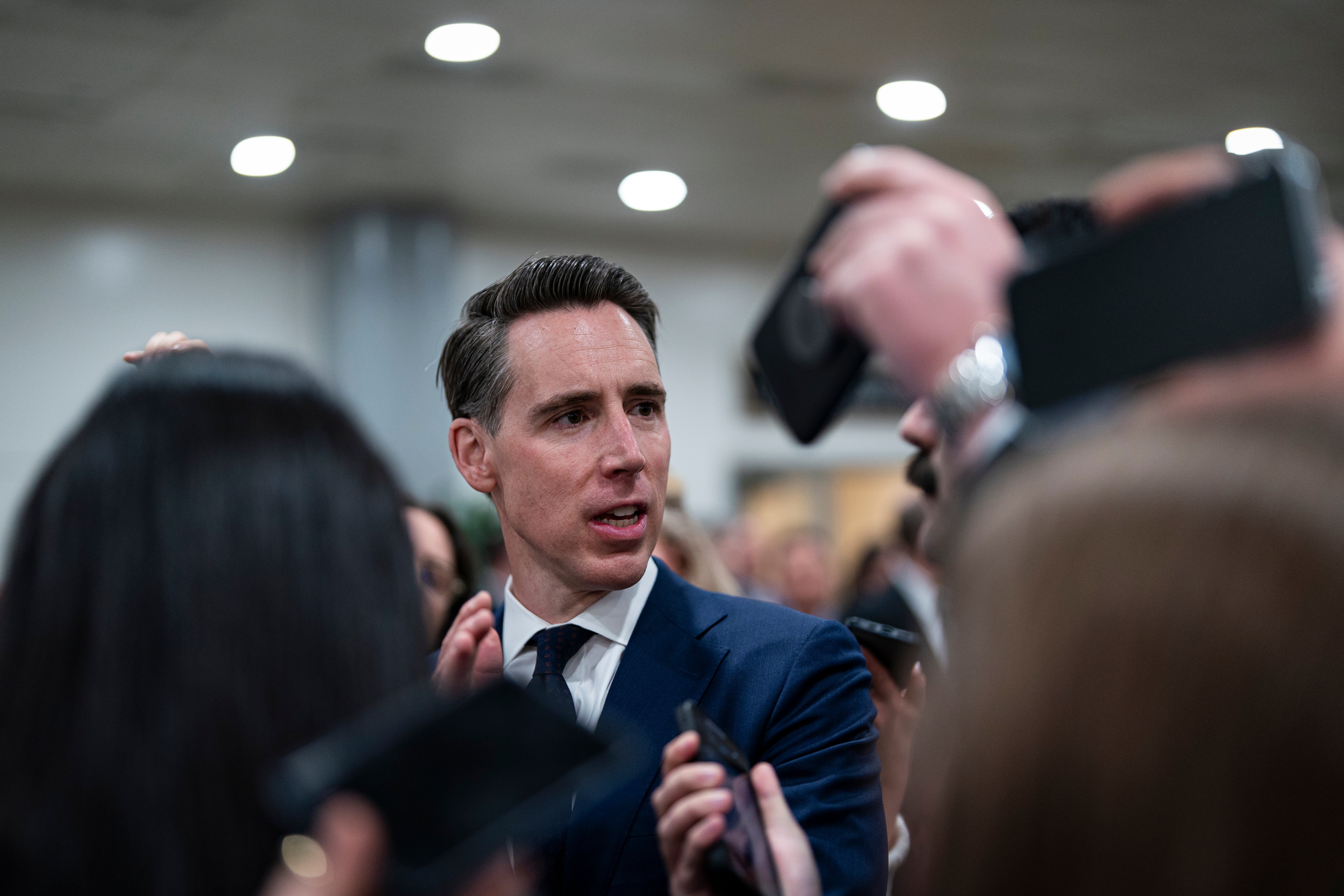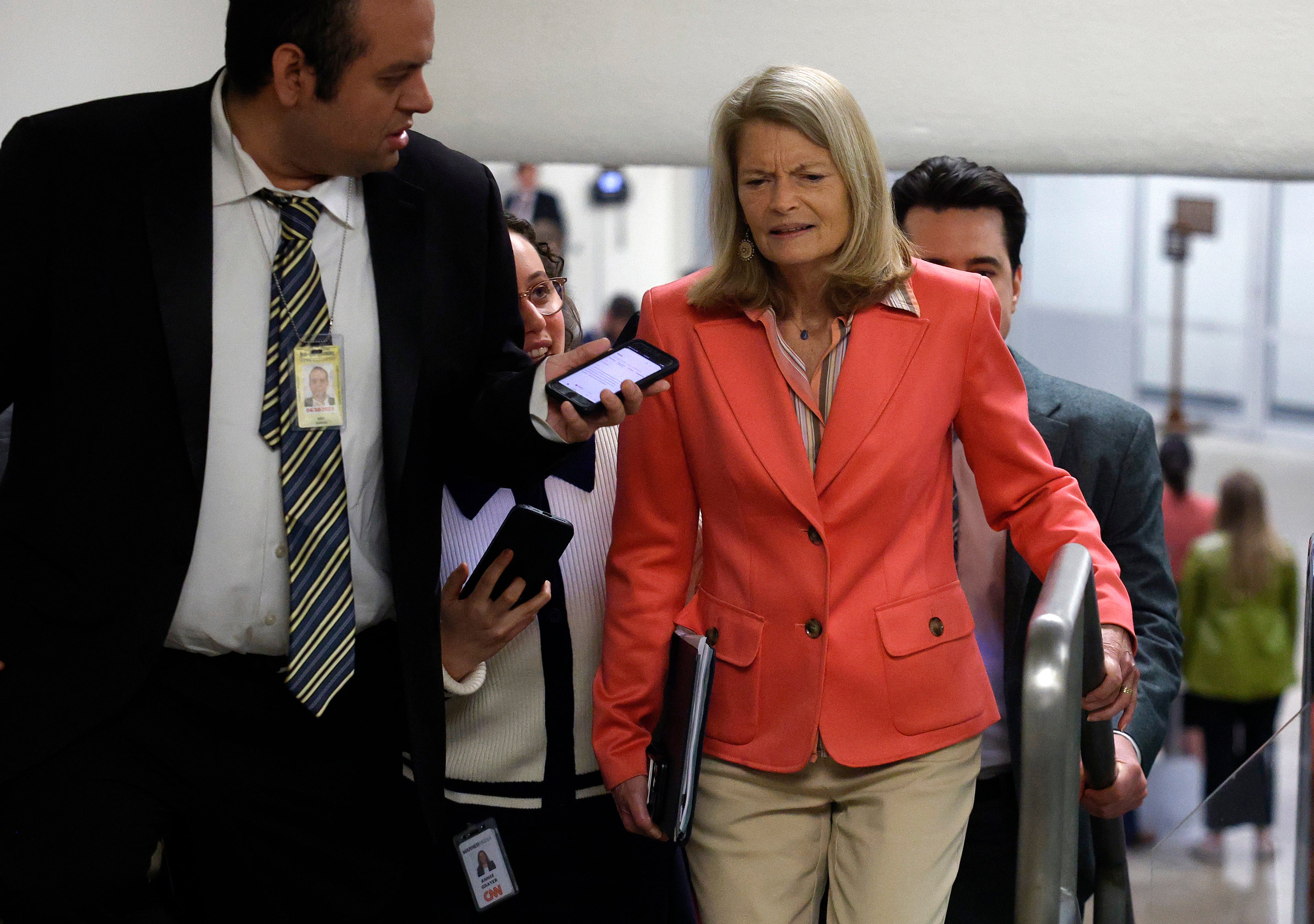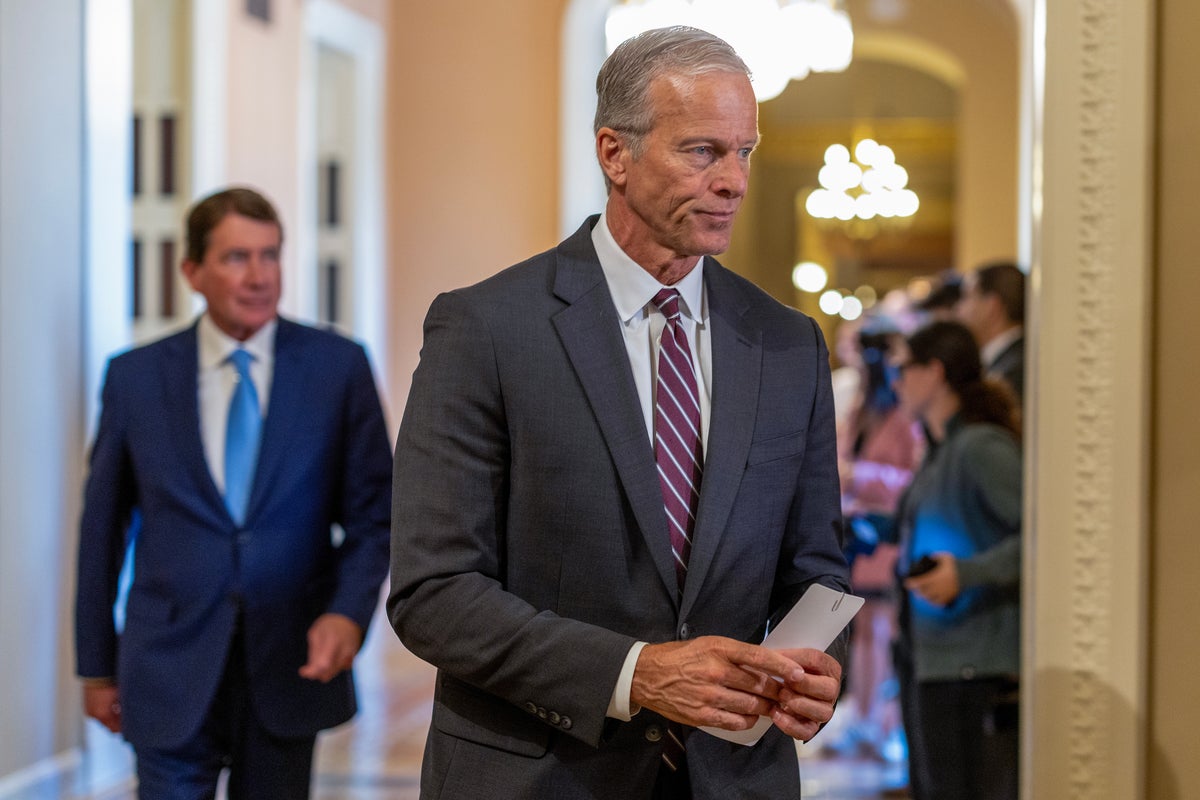On Monday evening, the U.S. Senate returns from a week-long recess to take up President Donald Trump’s proposed domestic spending bill, which he’s dubbed the “One Big, Beautiful Bill.”
The House of Representatives barely passed the bill last month in the wee hours of May 22. It was a coup for House Speaker Mike Johnson.
But passing it through the House was only halftime. And while House Republicans were just as divided as Senate Republicans, the upper chamber GOP has to navigate stricter and more arcane rules.
Senate Republicans have only 53 votes, which is not enough to overcome a Democratic filibuster. Thus, they plan to use a process called budget reconciliation, wherein they can pass legislation with only 51 votes as long as it is tied to the budget.
Trump has also said he understands the Senate will inevitably change the bill.
“I want the Senate and the senators to make the changes they want,” he told reporters. “It will go back to the House and we’ll see if we can get them. In some cases, the changes may be something I’d agree with, to be honest.”
The bill also represents Senate Majority Leader John Thune’s first major challenge. Thune inherited the mantle from his mentor Mitch McConnell after serving as the whip for Republicans since 2019. But to get this bill across the finish line, he will need to satisfy multiple factions and leaders in the Senate.
Here are the five groups that Thune will need to navigate.

The Fiscal Hawks
The Senate does not have a formal group of conservatives who want to slash spending the way that the House does with the Freedom Caucus. But they still have a bevy of fiscal conservatives.
Chief among them is Sen. Ron Johnson of Wisconsin, who last month told The Independent that reductions in spending were “fake cuts.” Other senators in this faction include Mike Lee of Utah and Rand Paul of Kentucky.
Sen. Rick Scott of Florida, who challenged Thune for the top job in the Senate last year, told Turning Point USA leader Charlie Kirk that he is a “no” on the bill in its current form. To win them over, Thune will need to probably exact some kind of spending cuts. But that might infuriate the next group.

The MAGA populists
No part of the bill has received more attention than the changes to Medicaid. Specifically, the legislation would require able-bodied adults without dependent children to work, participate in community service or education for at least 80 hours a month.
In a last-minute deal to appease conservatives, House Republican leaders moved up the work requirements to begin at the end of 2026 rather than in 2029. Republicans who hail from states that expanded Medicaid might also fret about this.
Chief among these Republicans is Sen. Josh Hawley of Missouri, who has sought to reorient the GOP to become the party of working-class voters and has adopted a more populist tone compared to other Republicans. Hawley has said he would oppose major changes to Medicaid because of how many people in his state depend on it and the Children’s Health Insurance Program.
If the Senate keeps the changes to Medicaid made in the House or goes even further on Medicaid, expect Hawley to stand up.

The Moderates and the front-liners
Republicans have a pretty favorable map in the coming midterms. With 53 seats, they only truly face risks in two swing state races: Thom Tillis’ re-election campaign in North Carolina and Susan Collins’ campaign in Michigan.
Tillis for the most part has focused on renewing the Tax Cuts and Jobs Act, the 2017 tax cuts that Trump signed in his first presidency. But Tillis also joined Sens. John Curtis of Utah, Jerry Moran of Kansas and Alaska’s Lisa Murkowski, the most moderate Republican senator, on a letter calling to preserve renewable energy tax credits in the Inflation Reduction Act, former president Joe Biden’s signature climate legislation.
The House legislation phases out many of the credits and some conservatives, such as the aforementioned Lee and Scott, want a rollback in those credits.
Historically, Republican moderates and swing-state incumbents have to eat the provisions conservatives insert into legislation. But if a handful of them break, there is a chance they might have leverage.

The Senate Parliamentarian
The most important person that Thune may have to convince is not even a senator, but rather a mostly anonymous rule keeper — the Senate parliamentarian.
Consider the parliamentarian as the Senate’s referee who polices the rules. The current parliamentarian, Elizabeth MacDonough, is seen by most as an impartial arbiter of the rules. MacDonough will be responsible for subjecting the bill to what is called the “Byrd Bath,” the strict criteria for what can be included in budget reconciliation, named for the late majority leader Robert Byrd.
Perhaps the biggest peril for Republicans will be if she rules that the revenue and spending parts of the bill are “merely incidental” to the parts that do not relate directly to the budget.
MacDonough infuriated progressive Democrats twice during Biden’s presidency: once when she advised against allowing a minimum wage increase in the American Rescue Plan, Democrats’ Covid relief legislation; and a second time when during the deliberations for Build Back Better when she advised against allowing immigration reform.
Already, Senate Minority Leader Chuck Schumer (D-N.Y.) said Democrats plan to challenge the provision in the bill to restrict the ability of courts to hold government officials in contempt. Also expect other provisions on immigration and the ban on using Medicaid dollars to pay for gender-affirming care to be challenged.
Donald Trump
Yes, the president could become a stumbling block to his own bill.
Even if Thune satisfies all members of his conference and gets most of the bill through the so-called Byrd Bath, Trump’s approval matters most. While the president has never cared much about the intricacies of policies, he responds to public perception and opinion.
If he thinks the bill will cause backlash as modified in the Senate because of spending or Medicaid cuts, he might send Thune back to the drawing board.
Also, if it does not go far enough on beefing up immigration enforcement, he could balk and send it back.




